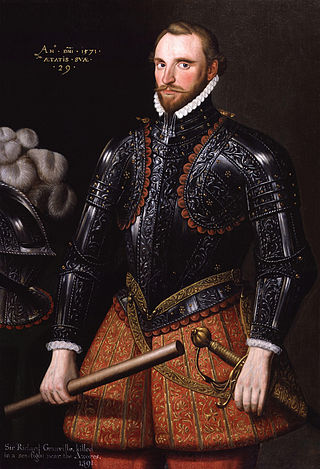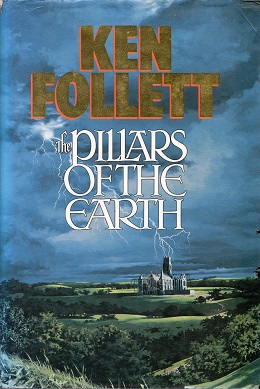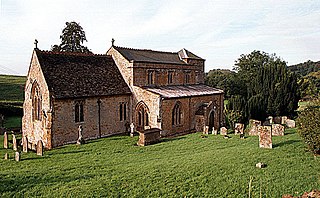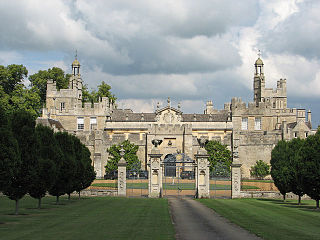
Lord Peter Death Bredon Wimsey is the fictional protagonist in a series of detective novels and short stories by Dorothy L. Sayers. A dilettante who solves mysteries for his own amusement, Wimsey is an archetype for the British gentleman detective. He is often assisted by his valet and former batman, Mervyn Bunter; by his good friend and later brother-in-law, police detective Charles Parker; and, in a few books, by Harriet Vane, who becomes his wife.

Lord Voldemort is a character and the main antagonist in J. K. Rowling's series of Harry Potter novels. The character first appeared in Harry Potter and the Philosopher's Stone, which was published in 1997, and returned either in person or in flashbacks in each book and its film adaptation in the series except the third, Harry Potter and the Prisoner of Azkaban, in which he is only mentioned.

Gwendolyne Maxine "Gwen" Stacy is a character appearing in American comic books published by Marvel Comics, usually as a supporting character in those featuring Spider-Man. A college student and the daughter of George and Helen Stacy, she is the first romantic interest for Peter following his high school graduation before she is murdered by the Green Goblin. Her death has haunted Peter ever since, and stories published long afterwards indicate she still holds a special place in his heart. Gwen is posthumously subjected to numerous cloning experiments by her former professor Miles Warren, Peter's clone Ben Reilly, and an A.I. of Harry Osborn, the latter resulting in the creation of the Kindreds, and Ben briefly resurrecting Gwen in "Dead No More: The Clone Conspiracy" (2016–2017), with the embodiment of Death herself confirming in Ben Reilly: The Scarlet Spider (2017–2018) that all clones Ben created of deceased people had their souls intact on being brought back, while clones of living people had unique souls of their own. In the alternate realities of Ultimate Marvel and Spider-Gwen, a still-living Gwen respectively becomes their universe's versions of Carnage and Spider-Woman.

Keeping Up Appearances is a British sitcom created and written by Roy Clarke. It originally aired on BBC1 from 1990 to 1995. The central character is an eccentric and snobbish middle class social climber, Hyacinth Bucket, who insists that her surname is pronounced "Bouquet". The show comprised five series and 44 episodes, four of which are Christmas specials. Production ended in 1995 after Routledge decided to move on to other projects. All 44 episodes have since been released on video, DVD and streaming media, and are regularly repeated on television networks throughout the world.

Sir Richard Grenville, also spelt Greynvile, Greeneville, and Greenfield, was an English privateer and explorer. Grenville was lord of the manors of Stowe, Cornwall and Bideford, Devon. He subsequently participated in the plantations of Ireland specifically the Munster plantations, the English colonisation of the Americas and the repulse of the Spanish Armada.

Thomas Wriothesley, 1st Earl of Southampton, KG was an English peer, secretary of state, Lord Chancellor and Lord High Admiral. A naturally skilled but unscrupulous and devious politician who changed with the times, Wriothesley served as a loyal instrument of King Henry VIII in the latter's break with the Catholic church. Richly rewarded with royal gains from the Dissolution of the Monasteries, he nevertheless prosecuted Calvinists and other Protestants when political winds changed.

West Drayton is a suburban town in the London Borough of Hillingdon. It was an ancient parish in the county of Middlesex and from 1929 was part of the Yiewsley and West Drayton Urban District, which became part of Greater London in 1965. The settlement is near the Colne Valley Regional Park and its centre lies 1.9 miles (3 km) north of Heathrow Airport.

The Pillars of the Earth is an historical novel by British author Ken Follett published in 1989 about the building of a cathedral in the fictional town of Kingsbridge, England. Set in the 12th century, the novel covers the time between the sinking of the White Ship and the murder of Thomas Becket, but focuses primarily on the Anarchy. The book traces the development of Gothic architecture out of the preceding Romanesque architecture, and the fortunes of the Kingsbridge priory and village against the backdrop of historical events of the time.
Saved is a play by Edward Bond which premiered at the Royal Court Theatre, London, in November 1965.

Sir William Kirkcaldy of Grange was a Scottish politician and soldier who fought for the Scottish Reformation. He ended his career holding Edinburgh castle on behalf of Mary, Queen of Scots and was hanged at the conclusion of a long siege.

The Uninvited is a 1944 American supernatural horror film that was directed by Lewis Allen and stars Ray Milland, Ruth Hussey, and Donald Crisp. The film is based on Dorothy Macardle's novel Uneasy Freehold (1941), which was published in the United States as The Uninvited (1942) and deals with a brother and sister who purchase a house in Cornwall, England, that is plagued by paranormal events. The film is part of a cycle of supernatural-themed films that began appearing in the mid-1940s. Dodie Smith began writing the film, and Frank Partos was brought in by his friend, associate producer Charles Brackett. Brackett wanted to have the film directed by Alfred Hitchcock but could not organize plans with him, so Allen directed it. Filming began on April 16, 1943; Allen found working with Gail Russell, who was inexperienced and began crying several times, to be the most difficult part of filming.

Little Lord Fauntleroy is a 1936 American drama film based on the 1886 novel of the same name by Frances Hodgson Burnett. The film stars Freddie Bartholomew, Dolores Costello, and C. Aubrey Smith. The first film produced by David O. Selznick's Selznick International Pictures, it was the studio's most profitable film until Gone with the Wind. The film is directed by John Cromwell.

Drayton is a village and civil parish in the valley of the Sor Brook in Oxfordshire, about 2 miles (3 km) northwest of Banbury. The 2011 Census recorded the parish's population as 242.

Henry Paget, 1st Earl of Uxbridge, of Beaudesert, Staffordshire, and West Drayton, Middlesex, was a British landowner and Tory politician who sat in the English and British House of Commons from 1695 until 1712 when he was raised to the peerage as Baron Burton as one of Harley's Dozen. He was a Hanoverian Tory, supportive of the Hanoverian Succession.
Christopher Brooke was an English poet, lawyer and politician who sat in the House of Commons between 1604 and 1626.

Lady Elizabeth "Betty" Germain was a wealthy English aristocrat and courtier, a philanthropist and collector of antiquities, who corresponded with literary and political figures.

Drayton House is a Grade I listed country house of many periods 1 mile (1.6 km) south-west of the village of Lowick, Northamptonshire, England.

An Age of Kings is a fifteen-part serial adaptation of the eight sequential history plays of William Shakespeare, produced and broadcast in Britain by the BBC in 1960. The United States broadcast of the series the following year was hosted by University of Southern California professor Frank Baxter, who provided an introduction for each episode specifically tailored for the American audience. At the time, the show was the most ambitious Shakespearean television adaptation ever made, and was a critical and commercial success in both the UK and the US. Performed live, all episodes were telerecorded during their original broadcast.
















